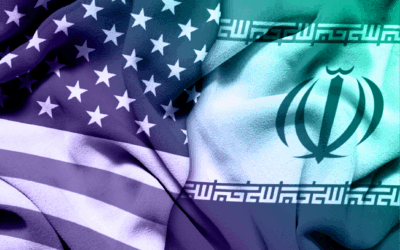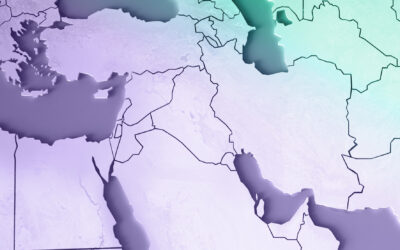Offering better investment terms to developing countries is essential to prevent Beijing from controlling the supply of important natural resources.
By: Daniel Silverberg and Elena McGovern
This opinion piece was originally published by The Wall Street Journal
December 4, 2023 — While the U.S. rightfully focuses on bringing its hostages home from Gaza and alleviating broader tensions in the Middle East, the U.S.-China competition continues unabated. The supplemental funding package for Israel that President Biden proposed in October contains a $1.25 billion funding request for the International Bank for Reconstruction and Development—a part of the World Bank—to help developing nations such as Kenya, Morocco and Nigeria get loans from Western organizations instead of from China. Congress should endorse this package and enact additional measures to weaken Chinese economic influence in the developing world.
For a decade, China has pushed its Belt and Road Initiative—an ambitious project aimed at linking countries around the world through railways, pipelines and other infrastructure financed by Chinese state-owned banks. The U.S. can offer better partnerships to secure countries’ futures while making the U.S. economy more resilient.
Over the past decade, China, through its Asian Infrastructure Investment Bank, has sought to expand its influence by providing cut-rate loans to developing countries. Even though Chinese workers have built substandard infrastructure, such as a cracking dam in Ecuador and faltering railroads in Ethiopia and Djibouti, impoverished countries continue to seek these loans, particularly to fund their green-energy transitions, indebting themselves to China for decades. China is using its banking power to dominate critical supply chains and spread the Communist Party’s soft power. The U.S. and its allies must act quickly and decisively to blunt its influence.
The Biden administration has been pushing for months to ensure that the U.S. and its allies, not China, control the supply chains critical to the green-energy transition. Mr. Biden and Group of 20 partners threw down an economic gauntlet against China in September with a revolutionary rail-to-port project connecting India with Europe. The India-Middle East-Europe Economic Corridor, or IMEC, will allow India and the United Arab Emirates to pump clean hydrogen into Europe, along with strengthening the power and digital infrastructure of participating countries.
The Biden administration believes that breaking America’s and its allies’ dependence on Chinese supply chains requires not only securing the raw materials for products like electric vehicles, but also safeguarding supply-chain infrastructure like railroads and seaports.
The $1.25 billion proposed by the administration would be a critical first step. It would allow the World Bank to provide financing to developing countries to build ports, railroads and mines that would be helpful to the U.S. Besides this funding, Congress should undertake four other reforms to help the U.S. fight the resource battle against China.
First, fix how the U.S. International Development Corp.’s equity investments are scored so that early-stage companies in emerging and frontier markets like the Democratic Republic of the Congo can attract investment. At present, the agency is required to treat equity investments as a total loss, akin to a grant, instead of allowing for expected return on investment. Changing these requirements would allow the agency to work with transparent global companies that are environmentally responsible and invest in local workers.
Second, double down on America’s commitment to the Group of Seven’s Partnership for Global Infrastructure and Investment, the vehicle by which Mr. Biden launched the India-Middle East-Europe Economic Corridor. The initiative involves corralling U.S., foreign and private capital to outbid Chinese interests in sectors vital to the West.
Third, seek to expand the World Bank’s risk threshold to allow greater investment in the infrastructure projects necessary to secure mineral supply chains. The World Bank currently takes a highly conservative approach toward investing in projects that China would be happy to fund. Congress can help by pushing the bank and its new leader, Ajay Banga, to raise the overall risk profile of World Bank loans.
Fourth, encourage the International Monetary Fund to create financing programs for countries of strategic importance, similar to the fund established for Ukraine in March. The IMF has restrictions on lending to countries in arrears, but the U.S. needs countries with critical mineral deposits, such as Zambia and Ghana, to escape their extensive Chinese debt obligations, and the IMF can provide them the means of doing so.
If the U.S. spreads its efforts too thin or focuses primarily on military power at the expense of economic diplomacy, it will lose this competition. But if it musters its finances and those of allied partners to address this most dire of Chinese economic threats, it will have a fighting chance.

Daniel Silverberg, Co-Head of Capstone’s National Security Team
Read more from Daniel:
Biden’s G20 China Play: Doubling Down on Infrastructure
Three Underappreciated Global Developments Impacting Energy Security
Why Global Infrastructure is the Most Consequential Aspect of Biden’s China Policy
Read Daniel’s bio here.

Elena McGovern, Co-Head of Capstone’s National Security Team
Read more from Elena:
The Strategic Shift: Why US-China Policy Will Shift to More Subtle Posturing
Biden’s Restrictions on Investment into China Is Just the Start of Chinese Investment Risk
The Growing Disaster Resilience and Recovery Economy
Read Elena’s bio here.



























